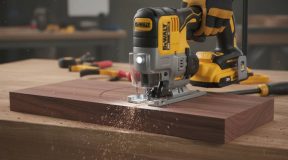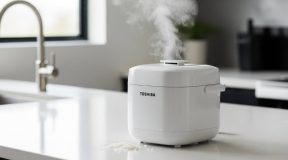Maintaining a well-kept home requires regular attention and care. With the arrival of September, it’s crucial to focus on specific areas to ensure your home remains in top shape throughout the season. Following these home maintenance tips for september, you can address important tasks and prevent potential issues from arising. Let’s explore the essential steps you should take to keep your home in excellent condition this September.
Check the Exterior
- Inspect the Roof
When building a custom home, it’s important to start with proper home maintenance, beginning with the roof. Take a careful look for any signs of damage or wear, such as loose or missing shingles, cracks, or leaks. By addressing these issues promptly, you can prevent water damage and maintain the structural integrity of your home.
- Clean and Repair Gutters
Clearing your gutters of debris is vital to prevent clogging and water overflow during heavy rains. Use a ladder and gloves to remove leaves, sticks, and other obstructions. Additionally, check for any damage or leaks in the gutters and downspouts and repair them as necessary.
- Trim Trees and Shrubs
Overgrown trees and shrubs can cause damage to your home, especially during storms. Trim branches that are close to your house, windows, or power lines. By doing so, you can minimize the risk of falling branches and potential property damage.
Prepare the Interior
- Clean and Dust Furniture
Give your furniture a thorough cleaning and dusting. Use appropriate cleaning products or gentle soap and water to maintain the quality of the materials. Pay attention to hard-to-reach areas and vacuum upholstered furniture to remove any hidden dust or debris.
- Check and Replace Air Filters
Clean air filters improve indoor air quality and help your HVAC system operate efficiently. Check your filters and replace them if they appear dirty or clogged. This simple task can enhance the performance of your heating and cooling system and reduce energy consumption.
- Test Smoke Detectors
Smoke detectors are crucial for your family’s safety. Test them to ensure they are working correctly and replace batteries if needed. It’s also a good idea to have a fire escape plan in place and discuss it with your family members.
HVAC Maintenance
Before the colder months arrive, schedule a professional inspection of your HVAC system. An expert technician can identify any issues and perform necessary maintenance tasks to ensure optimal performance. This preventive measure can save you from unexpected breakdowns and costly repairs.
Clean air vents and ensure they are not blocked by furniture or other objects. Restricted airflow can strain your HVAC system, leading to inefficiency and potential malfunctions. If needed, consider replacing old or damaged vents for better air circulation.
Adjust your thermostat settings according to the changing weather conditions. Optimizing energy efficiency by programming lower temperatures when you’re away or asleep can help save on heating costs. Installing a smart thermostat can further automate this process and provide greater control over your home’s temperature settings.
Plumbing Maintenance
Check all faucets, pipes, and water fixtures for leaks. Even a small leak can waste a significant amount of water over time. Repair any leaks promptly to conserve water and prevent potential water damage.
Flushing your water heater helps remove sediment buildup, ensuring optimal performance and extending its lifespan. Follow the manufacturer’s instructions or consult a professional for proper flushing techniques. Regular maintenance of your water heater will also enhance its energy efficiency.
Water pressure that is too high or too low can be problematic. Use a pressure gauge to check the water pressure in your home. If it exceeds the recommended range, consider installing a pressure regulator to protect your plumbing system and appliances from potential damage.
Electrical Maintenance
Inspect the wiring in your home for any signs of wear, damage, or exposed wires. Faulty wiring can be a fire hazard, so it’s crucial to address any issues immediately. Test your outlets to ensure they are functioning correctly and replace any malfunctioning ones.
Check all light fixtures and replace any burnt-out or flickering lightbulbs. Opt for energy-efficient LED bulbs, which last longer and consume less electricity. Adequate lighting not only improves the ambiance but also enhances safety in your home.
Ground Fault Circuit Interrupter (GFCI) outlets protect against electrical shocks and should be tested regularly. Press the “Test” and “Reset” buttons on your GFCI outlets to ensure they are functioning correctly. If they fail to trip or reset, consult an electrician to resolve the issue.
Pest Control
Inspect the exterior of your home for any cracks, gaps, or openings that pests can use to enter. Seal these areas with caulk or other appropriate materials to prevent pests from finding their way inside.
Keep your home free of accessible food sources that can attract pests. Store food in airtight containers, promptly clean up spills and crumbs, and regularly dispose of garbage. This proactive approach can minimize the risk of infestations.
Set traps in strategic locations if you notice signs of pests in your home, such as droppings or gnaw marks. It’s best to consult professional pest control services for severe infestations or persistent issues. They can assess the situation and provide effective solutions tailored to your specific needs.
Cleaning and Organization
Give your carpets a thorough cleaning by vacuuming and, if necessary, using a carpet cleaner. Deep cleaning removes dirt, dust, and allergens, ensuring a cleaner and healthier living environment. Don’t forget to clean other types of flooring as well, using appropriate cleaning methods and products.
Take the opportunity to declutter and organize your living spaces. Remove items you no longer need or use and find suitable storage solutions for the ones you want to keep. A clutter-free home not only looks better but also promotes a sense of calm and order.
Clean and maintain your appliances regularly to ensure their optimal performance. Wipe down kitchen appliances, clean out the refrigerator, and descale your coffee maker. Additionally, clean fixtures such as faucets, showerheads, and ceiling fans to remove dust and grime.
Safety and Security Measures
Ensure your home security system is in good working order. Test alarms, replace batteries, and update security codes if necessary. If you don’t have a security system, consider installing one to protect your home and give you peace of mind.
Carbon monoxide (CO) is a silent killer, so it’s crucial to have functioning CO detectors in your home. Install detectors near sleeping areas and test them regularly to ensure they are detecting any potential leaks.
Inspect the condition of your windows and doors and ensure they are properly sealed and secure. Replace worn-out weatherstripping and consider installing additional security measures such as deadbolts or window locks. These steps can help prevent break-ins and enhance the safety of your home.
Conclusion
By following these home maintenance tips for September, you can ensure your home remains in top shape throughout the season. Taking proactive measures to inspect, clean, and address any issues will enhance your home’s functionality and longevity and contribute to a comfortable and safe living environment.
Frequently Asked Questions (FAQs)
How often should I clean my gutters?
Cleaning your gutters at least twice a year, ideally in the spring and fall, is recommended. However, more frequent cleanings may be necessary if you live in an area with heavy foliage or frequent storms.
Can I replace my own air filters?
Yes, replacing air filters is typically a simple task for homeowners. Refer to your HVAC system’s manual or consult a professional if unsure about the specific filter type or installation process.
What is the purpose of a GFCI outlet?
A GFCI outlet is designed to protect against electrical shocks by quickly shutting off the power when it detects a ground fault. They are commonly installed in areas with water, such as kitchens, bathrooms, and outdoor outlets.
How often should I deep clean my carpets?
Deep cleaning of carpets every 12 to 18 months is generally recommended. However, high-traffic areas or homes with pets may require more frequent deep cleaning.
Is it necessary to hire professional pest control services?
For minor pest issues, setting traps and taking preventive measures may suffice. However, for severe infestations or recurring problems, professional pest control services can provide effective and long-lasting solutions.





